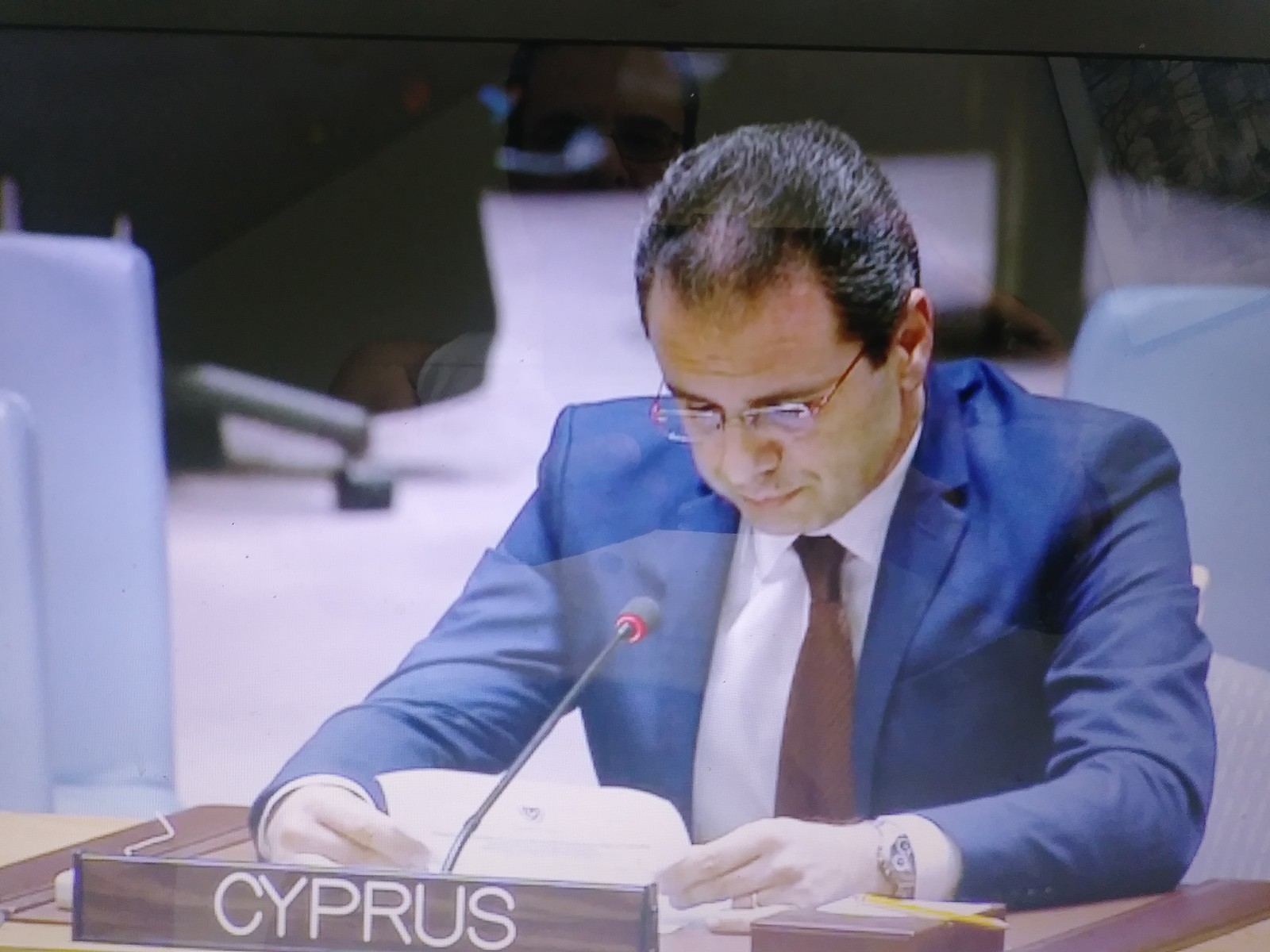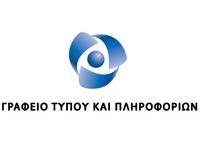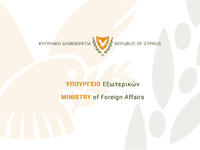Press Releases

21-05-2018 12:23
Statement of the Republic of Cyprus at the UN Security Council Open Debate
Statement delivered, on Thursday, 17th May 2018, by Deputy Permanent Representative, Mr Menelaos Menelaou, at the Security Council open debate on upholding international law within the context of the maintenance of international peace and security, at the headquarters of the United Nations, in New York.
“Mr President,
On the outset, I would like to commend the Polish Presidency for convening this timely open debate on upholding international law within the context of maintenance of peace and security. Cyprus aligns itself with the statement delivered by the European Union, and wishes to deliver some additional remarks in its national capacity.
International law and the Security Council, are inextricably linked. The United Nations is founded on a legal instrument, the Charter, and all of its activities are based on the legal authority that that instrument provides. The action of the Security Council itself has important international legal implications, such as those related to resolutions adopted under Chapter VII of the Charter. Despite being legally binding, UNSC Resolutions are unfortunately not always upheld. UNSC Resolutions on Cyprus, for example, continue to be systematically violated.
It remains our conviction, that the obligation, particularly when dealing with matters of peace and security, to act consistently with the Charter and with international law in general, has the power not only to prevent conflict but also to resolve conflict. In the case of Cyprus, if the rules of international law had not been violated by Turkey the Cyprus problem would not have arisen. And if these rules are applied today - in other words if Turkey had implemented what it preaches -, the main aspects of the problem, and especially the international aspects which form the heart of the issue, can be solved fairly for all parties concerned and in the interest of international peace.
The Republic of Cyprus remains unequivocally committed to the principle of peaceful settlement of disputes. Two examples of this, are, its steadfast commitment and continued support to the UN brokered peace process in Cyprus, and its acceptance of the compulsory jurisdiction of the International Court of Justice.
This commitment is also the cornerstone of our policy of trilateral partnerships which we have established with our neighboring countries, Greece, Israel, Egypt, Jordan, Lebanon and Palestine, founded upon our adherence to the need for stability and good neighborly relations as the bedrocks for peace and prosperity for all countries and people in the extremely volatile region of the eastern Mediterranean.
Turning to the maritime domain, the same abidance to international law, as reflected in the United Nations Convention for the Law of the Sea, has the potential to both prevent and to resolve maritime conflict. With its universal and unified character, the Convention effectively regulates all activities in the largest space on this planet, by setting out the legal framework within which all activities in the seas must be carried out. Considering that the UNCLOS provisions, reflect customary international law, and are thus binding on all States, we urge States to act in conformity with the Convention and refrain from actions in violation of article 2(4) of the UN Charter prohibiting the threat as well as the use of force and promote the peaceful settlement of maritime disputes.
Turkey’s actions in the Eastern Mediterranean, escalated to the threat of use of force, interfere with the authority of Cyprus to exercise its inherent and inalienable sovereign rights to explore and exploit its offshore natural resources and they constitute a striking example of the “gun-boat diplomacy” methods used by this country endangering the peace and security of the region.
Mr President,
Cyprus whilst acknowledging the role of the veto as a tool that can provide the needed checks and balances among major international actors, reiterates its unequivocal support to the Code of Conduct regarding Security Council action against genocide, crimes against humanity or war crimes. We also welcome the historic activation of the International Criminal Court’s jurisdiction over the crime of aggression, as of 17 July 2018, thereby allowing ICC action, including following a referral by the Security Council. It is significant that, by virtue of its mandate, the Council will be able to do so without restrictions, with respect to all States. We see this development as contributing to the “suppression of acts of aggression” cited in Article 1 of the Charter as a primary purpose of the UN. With this opportunity, we also wish to encourage the ratification and implementation of the updated version of the Rome Statute.
Moreover, with regard to recent developments, we wish to express serious concern, over the attempts to open the door of Art. 51 of the UN Charter to “the threat of terrorism” in response to armed attacks perpetuated by non-State actors, which carries a potential for escalation of violence and for abusive invocations of self-defense.
Lastly, the Republic of Cyprus is concerned with the serious escalation of the situation in Gaza resulting in loss of life. We call on all to demonstrate utmost restraint. The situation puts into even sharper focus the imperative need for the two sides to resume negotiations for a peaceful resolution to the Palestinian-Israeli conflict in the framework of the two-state solution, which will be to the benefit of Palestinians and Israelis and will contribute significantly towards peace and security for the whole region. Cyprus maintains the position that the final status of Jerusalem is to be determined through negotiations, on the basis of UNSC Resolutions.
In concluding Mr. President, let me once more commend you and express our appreciation for your initiative to organize this open debate.”
(AH)
Relevant Press Releases

19-04-2024 16:42
PIO e-mail Αlerts service is suspended

15-04-2024 14:04
The Ambassador of Cyprus to South Sudan presented her credentials

14-04-2024 12:45
Statements by the President of the Republic


11-04-2024 19:20
Official visit of the Foreign Minister of Andorra to Cyprus


